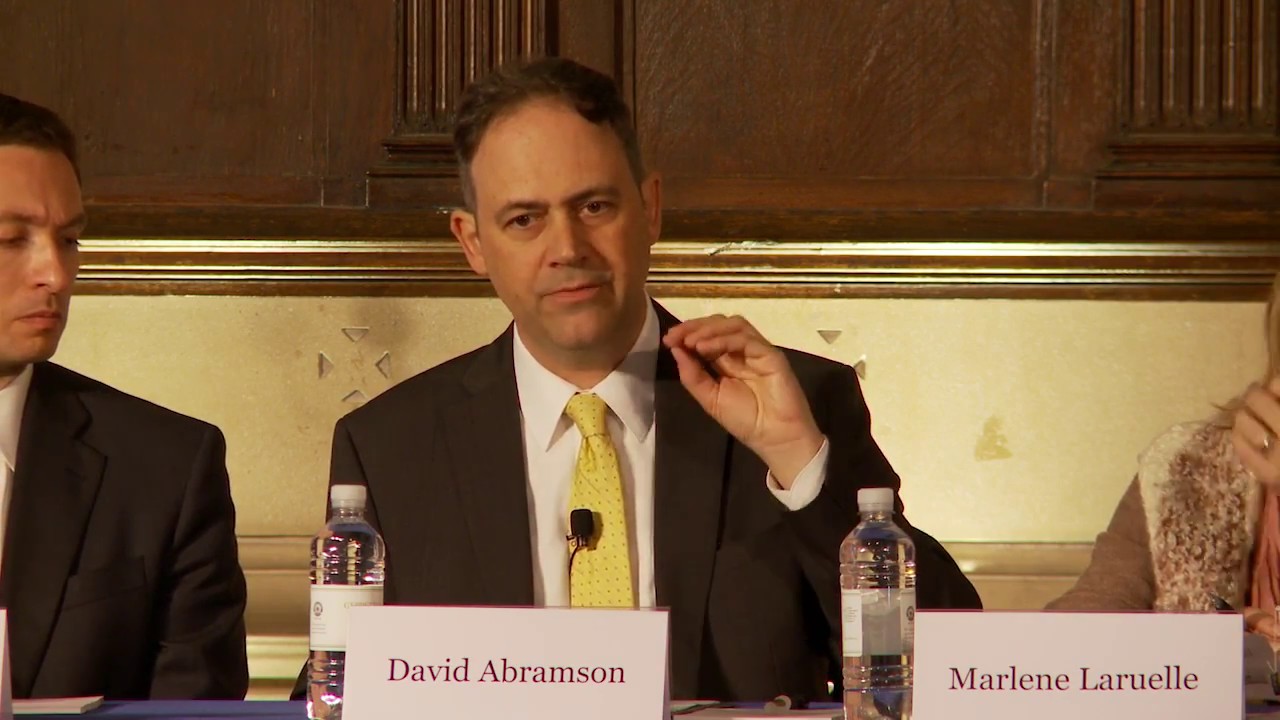
c/o Georgetown Center for Eurasian, Russian and East European Studies
On Monday, March 26, David Abramson ’87 came to campus to discuss Russian foreign policy and the country’s interest in Asia in a lecture titled “The Proof is in the Pudding: Putin’s Pivot to Asia.”
“I wanted to call it ‘The Proof is in the Putin,’” he joked. “But that didn’t entirely make sense.”
Dr. Abramson, who studied Russian Language and Literature at Wesleyan and received a PhD in Anthropology from Indiana University, is currently a Senior Analyst for the Office of Analysis for Russia and Eurasia at the U.S. State Department. He prefaced the lecture by explaining that his ideas do not represent those of the State Department or the United States government, and that he would refrain from discussing American foreign policy.
Abramson discussed three key points regarding Russia’s new Asiatic focus: the underlying veracity of the public pivot to Asia in Russian foreign influence, its impact on U.S. interests, and the effects of the recent Russian presidential election’s impact on Putin’s foreign policy.
First, Abramson considered how promising a relationship with Asia would be for Russia, as correspondence with Asian countries would diversify their pool of relationships. However, Abramson also found the pivot to reveal weaknesses in Russia.
“It’s an expedient diversification away from Europe,” Abramson said. “China is such a greater economic power that this could weaken Russia as Russia looks to China, embraces China, and economically but also politically and maintain a bloc of the two.”
Abramson emphasized the tepid nature in which Russia must approach a relationship with Asian countries, especially China.
“The optics of Russia as a junior partner—that’s something that Putin has hoped to avoid,” Abramson said. “It makes him look weak.”
As such, Abramson discussed the ways in which Russia tries to seem a co-equal partner through the National Security Council on the United Nations. Abramson also expressed a prevailing concern of a greater alignment between the two nations.
“There are experts who worry that Russia and China [are] two examples of authoritarian government and will be marching side by side in campaigns in the future,” Abramson said. “I have my doubts.”
Instead, Abramson argued that this was an alliance created mainly for public presentation, and that it will be difficult to make for substantive cooperation. One obstacle is Russian elites’ connections to European business and culture, and the negligible historical foundation for such a relationship with China.
One example Abramson offered as evidence of the friction between Russia and China is China’s new railway project in the former Soviet republic of Kyrgyzstan. He cited the project’s dual focus on economics, through trade, and security, with a greater ability for China to transport troops to the region.
“Are they going to use China’s gage, or the Soviet gage?” Abramson said. “Here’s an example of an economic aspect, which Russia is comfortable with China being in Central Asia economically, but when it starts to bleed into security issues it becomes a greater issue.”
Abramson sees Central Asia as the most likely place for tension to emerge between the two countries. At the same time, he believes the tension will occur behind closed doors, in order to maintain the public perception of an alliance.
Abramson also delved into his work concerning North Korea, and how Russia would respond to instability on the peninsula. He believes that despite sharing a border with North Korea and historically strong relations between the two countries, large-scale Russian intervention would unlikely.
“Because this is China’s problem, they don’t want to be upstaged by China,” Abramson said. “This [would be] the first time, if they were operating side by side, that Russia could look like the junior partner.”
Mason Mandell can be reached at mjmandell@wesleyan.edu or on Twitter @MasonMandell.